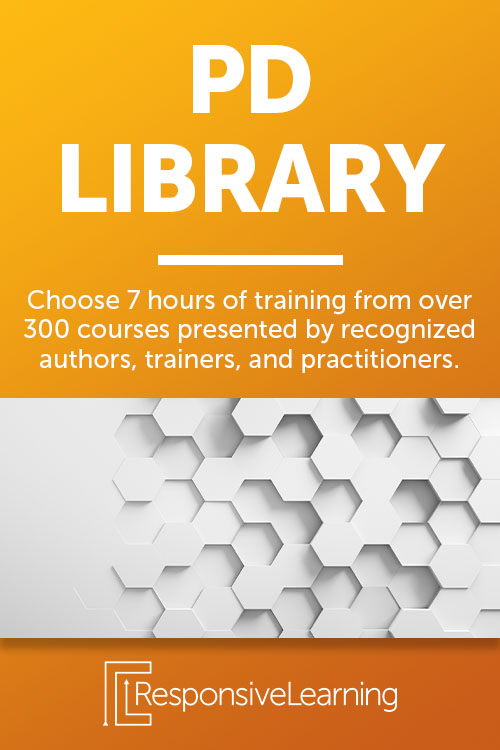As a Special Education Administrator, it’s critical your school follows the rules and regulations set forth by the Individuals with Disabilities Education Act (IDEA) and relevant state laws. That may get you wondering how to avoid legal trouble in special education. The biggest pitfalls that get advocates and lawyers ready to drag your district or your teachings into court or through due process are below. Whatever you do, make sure you’re on top of these five things.
1. Avoid Legal Trouble with Individualized IEPs
One of the key provisions of IDEA is the requirement to create an individualized education program (IEP) for each student with a disability. An IEP is a document that outlines the specific goals, objectives, and accommodations that a student needs to be successful in school. It’s important to involve parents and guardians in the IEP process and to keep them informed about their child’s progress. This helps ensure that the student’s needs are being met and that there is good communication between the school and the student’s family.
In order to assure that the IEP is meeting the student’s needs and goals, it’s crucial to regularly review and update the IEP as needed. As an administrator, have a process or system to audit paperwork and meet quality indicators. If you need your staff to brush up on IEP writing, then check out these resources.
2. Ensure FAPE and LRE
As an administrator, it’s your responsibility to ensure that your school is providing FAPE in the LRE for all students with disabilities. This may include providing specialized equipment or materials, adapting the curriculum, or allowing for additional time or assistance during assessments. Review your department to guarantee access is being provided as it’s written in the IEP.
Then go beyond individual plans and think about campus access. It’s important to maintain that students with disabilities have equal access to extracurricular activities, such as sports, clubs, and school events, as their non-disabled peers.
What are FAPE and LRE?
Okay, we’re going to dive into the list in a moment. First, let’s get the SpEd jargon out of the way. As a reminder, the two biggest things that lead to lawsuits are violations of FAPE and LRE laws.

These laws guarantee students with disabilities receive a free and appropriate public education (FAPE) in the least restrictive environment (LRE). FAPE means that schools are required to provide students with disabilities the necessary support and accommodations to foster an equal opportunity to learn and participate in school.
The LRE is the setting in which a student is educated with his or her non-disabled peers to the maximum extent appropriate. Special education and related services are provided as needed to ensure equal access to the curriculum.
3. Provide Ongoing Training
As a special education administrator, you must guarantee that all staff members who work with students with disabilities are properly trained and qualified to do so. This includes providing ongoing professional development and support to help teachers and other staff members stay up-to-date on the latest teaching techniques and strategies. Your school should ensure that all staff members have the knowledge and skills required to effectively support the needs of students with disabilities.
One way to provide ongoing professional development for your staff is by checking out the professional development courses in the Responsive Learning catalog. These courses cover a variety of topics, including best practices for teaching students with disabilities, strategies for differentiating instruction, and how to create a positive and inclusive classroom environment.
By investing in professional development for your staff, you can help them stay current on the latest research and techniques in the field of special education. This will foster department success and sustain a staff that is equipped to provide the best possible education for your students with disabilities.
4. Deliver SDI, Accommodations & Modifications
Providing the needed accommodations and modifications to students with disabilities so they have equal access to the curriculum is a key way to keep your department out of legal trouble. It’s how you make good on the promises made in a student’s individualized plan.
On top of that, it’s also important to make sure that these students have access to specially designed instruction (SDI). SDI refers to the adaptation of the content, method, or delivery of instruction to meet the unique needs of a student with a disability. This may include adapting the curriculum, using specialized teaching techniques, or providing additional supports or resources. Schools must consider the individual needs of each student and provide SDI as needed to support the student as they access and benefit from the general education curriculum.
In most cases, delivering the right accommodations, modifications, and SDI to students is about better preparing the staff. That means an administrator needs a solid system for sharing strategies and techniques for instruction to staff. By providing these things, a school can ensure that students with disabilities have the opportunity to learn and make progress at the same rate as their non-disabled peers.
5. Maintain Proper Documentation
Finally, your school must keep thorough documentation of everything related to the education of students with disabilities. This includes records of IEP meetings, progress reports, and any incidents or behaviors that may require additional support or intervention. This documentation can be used to track the student’s progress and to identify areas where additional support or accommodations may be needed. It can also help to protect your school and its staff from legal challenges.
RECAP: How to Avoid Legal Trouble in Special Education
As an administrator, navigating how to avoid legal trouble in special education starts with following these 5 tips:
1. Individualize IEPs
2. Ensure FAPE and LRE
3. Provide Ongoing Training
4. Deliver SDI, Accommodations & Modifications
5. Maintain Proper Documentation
By following these guidelines, special education administrators can guarantee that their schools provide high-quality education for all students, including those with disabilities, while avoiding any legal trouble along the way.
About the Author:

Ayo Jones is an experienced special education teacher, successful instructional coach, and charismatic professional speaker. Driven by her love for all things special education, Ayo provides educators teaching students with significant disabilities exactly what they need to survive and thrive.
In her over 15 years in education, she has coached hundreds of teachers, trained thousands of educational professionals, and developed curricula for tens of thousands of students with disabilities. You can learn more about Ayo on her website, Noodle Nook.

